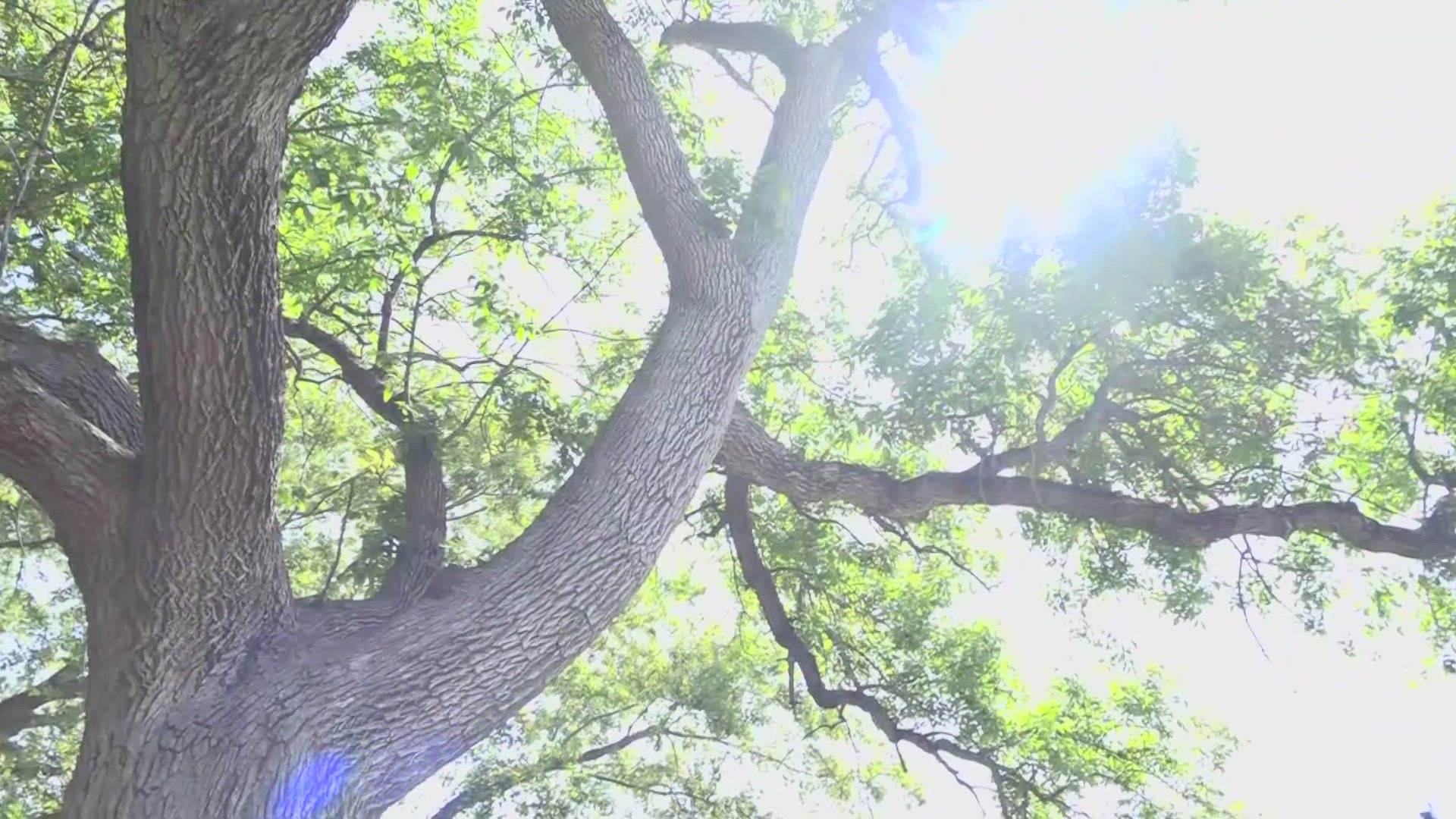BANGOR, Maine — The City of Bangor is preparing for the emerald ash borer to threaten over 2,000 ash trees lining city streets and shading community parks after the invasive insect was found nearby.
Over the summer, the city's four forestry interns cataloged all the trees that the Bangor Department of Public Works oversees. Of the total count, ash trees make up 20 percent.
The emerald ash borer has not been recorded in Bangor to date, however, last year the insect was found in nearby Hermon.
The insect's proximity is concerning, but Ben Arruda, Bangor's urban forestry manager, says the city has a plan.
Based off the work his interns did, there are about 250 trees that will receive an insecticide injection inserted into the base of the tree.
"What that injection [will] do is get into the inner bark and get carried out to the upper canopy," Arruda said.
In coming years, more trees will receive insecticide. But for the remaining trees, they will be monitored and removed as needed. If a tree is infected, it will be replaced with a new species.
One of the interns, Sophia Cameron, is studying for her master's degree in forestry at the University of Maine. The dominance that ash trees have in Bangor is not uncommon.
"Green ash is one of the most commonly planted street trees," she said. "It's really hit a lot of urban areas really hard due to this issue."
However, between the work to save some trees and replace others, Cameron is hopeful that Bangor will do better than many other communities.
"Diversifying the canopy coverage and increasing the canopy coverage," she said. "Is a unique position to be in... because a lot of people when they react retroactively end up losing the majority of their canopy coverage."
Monitoring and managing the threat the ash borer and other pests pose to Maine's forests in Allison Kanoti, Maine's state entomologist and the director of forest health and monitoring at the Department of Agriculture, Conservation, and Forestry.
She oversees capture projects statewide and sees Bangor's trees falling victim to the emerald ash borer as inevitable.
"It is pretty likely that it is here or will be here pretty soon," she said.
Bangor is still trying to stay ahead of the insect and is encouraging residents to record their ash trees with the city so more planning and preparation can take place.

